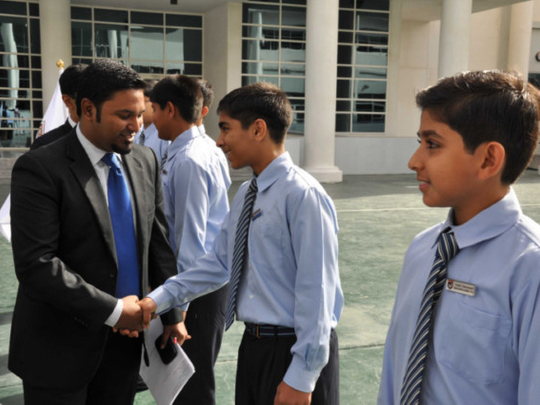
In a recent speech made at school by our principal, he made a very pertinent observation when he said: “Schools today cannot function with 19th century classrooms, 20th century teachers and 21st century students. Educational systems around the globe are poised at the brink of monumental change and I’m so glad that I get to be a part of it.
I am part of what I think is that final generation of people that got the whole ‘school experience’ sans the internet. I find myself to be a part of a unique cohort of people who have watched education go from pre-internet to its online version almost as if someone flicked a button while we were not watching and its effects have been unparalled.
Today, the advent of social media and blogging has brought with it a host of yet to be explored possibilities that are revolutionising the way educators approach their lessons.
In the next few weeks I will attempt to give you a comprehensive idea of what it is like to use blogging and social media as class room tools. I am no authority on the subject, all I want to do is share my personal experiences that I have learnt from people who challenge themselves and their pupils by finding innovative ways to engage them in virtual learning environments long after the school bell has rung.
What are educational blogs?
Educational blogs reinforce the teaching-learning process by providing the stakeholders with contexts for engaging in discussions and higher-order thinking activities, in a virtual envrionment. In my own case, my educational blog evolved from three major directions.
• To communicate and interact with my pupils
• To generation dialogue and debate
• And of course, to allow for the ‘Oh so crucial’ individual reflection.
With classroom time being limited, I look for meaningful ways to extend our discussions outside the 45-minute lecture; the blog has been the perfect venue. Recently, when my grade 10 literature class read the short story “Marriage is a Private Affair” by Chinua Achebe, the students followed up their reading by researching the Ibo tribe of Africa mentioned in the story.
They composed comments for the blog from the point of view of the main characters reflecting on ideas such as free will, traditions, cultural conflicts etc... It was a wonderful mix of reading, researching and writing…..none of which took place in my classroom!
How these work
The multiple benefits of extending classroom conversations to the online world is truly remarkable. Suddenly, I find that I’m surrounded by little subject experts. The links I post, the videos I share and the information I direct them to through the blogosphere has ensured that the people I meet in class every morning are well prepared and raring to go. The depth and breadth of their online discussions, their research and their commitment to course work has taken on a complete new avatar.
While educational blogs are not a new phenomenon, they are still not part and parcel of common teaching practices in many schools. A considerable cross section of teachers, parents and students feel the benefits of blogging outweigh the negatives, if for no other reason than that blogs encourage students to participate in and take responsibility for their own education.
Recently, I conducted an informal blogging session with some of the Kindergarten teachers at my school. They’re already in the process of starting classroom blogs for collaborative writing, sharing pictures and as an online medium to engage both parents and students throughout the school year. Teachers today don’t shy away from technology; we acknowledge the depth and breadth of its influence and embrace it for its powerful impact on teaching and learning.
I know of several teachers today who are intimidated by how technology is taking the educational world by storm. It could be the fear of change that deters them, maybe they feel like they’re not technologically adept or perhaps they continue to lurk on the fringes, afraid to take the plunge. To those teachers I will say this, technology merely changes the structure of your process and you still remain in control of how you want your students to learn.
The bottom line really is this, 21st century children are different, they have a completely unique skill-set and are technologically sound and proficient and if we want to really get through to them, we’ve got to be able to speak their language. Embracing technology such as blogs, online learning environments and social media is no longer an option; it is a 21st century requirement. I know it may sound daunting and nerve-racking for newcomers, but I assure you – baby steps…that’s all it really takes!
Until next time…
Sydney Michael Atkins is an English teacher at the Gems Modern Academy, Dubai













